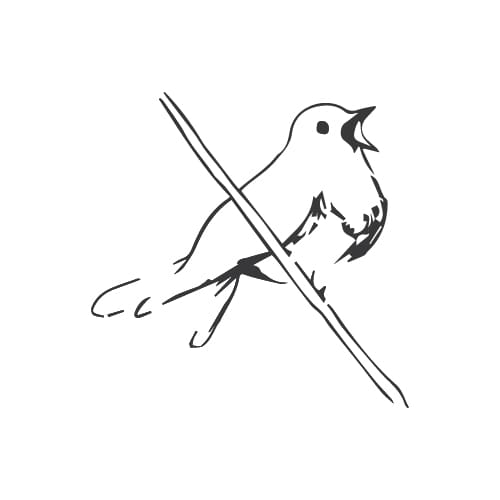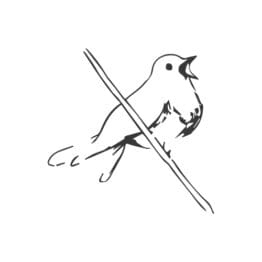Prompting
- Nightingale
It’s normal to feel isolated right now, or scared, or worried, or unsure of what’s going to happen next, or whatever it is that you’re feeling. Chances are, one of us is feeling it too. We’re all navigating unprecedented times, and we’re doing our best to work through it together even if we’re not in the same physical space. We know our staff is looking for inspiration and light these days, and we thought you might be too. So for this post, we want to highlight the creativity of The Nightingale Editor Megan Otto by sharing the previous prompts from The Nightingale. We hope this celebration brings something positive to your day! And while these are no longer active for submission to us, we encourage you to explore them now in whatever way that looks for you. From all of us on staff and the literary team at Awakenings, thank you for including us in your community. We are so grateful to be part of your healing and your lives.

March 2020
Write the story you most want to hear.
Perhaps it’s a story told to you, by someone else. It can be a story you wish someone in your life would tell you – or, what do you wish someone had told you sooner? You could even write a more general story and tell a news story you’d love to hear that has to do with survivors at large. Take on that voice and see what happens when you tell the story to yourself.
This can be a story based in the real world, about real events and experiences, or it can be entirely fiction, a made-up tale. Imagine a story that could help you, the kind of story you could hold onto and look back to when you need a burst of hope.
Writing brings something entirely new into the world. It’s within your creative power to make something out of nothing. If you seek to create a story specifically for yourself, what is that story like? How might it help you heal?
Write a story that gives you hope.
February 2020
Recipe for healing.
In February, when we’re in the middle of winter (in the northern hemisphere, at least) and a comforting warm meal can work wonders, we’d like to invite you to imagine healing as a recipe.
What are the ingredients, and how do they all work together? What kind of dish is it, and what will the finished product be like?
Your recipe for healing can be literal or abstract. Send us a food recipe for something comforting, like your favorite self-care dish. Tell us about where the recipe comes from, or when you like to make it, or how it makes you feel.
If you’d like to take a more figurative approach, what are your ingredients of experience that have worked together to make something new in your life? How many cups and tablespoons of self-care do you mix together for the perfect day? What steps have you taken over time, for healing that takes months or years to “cook”?
We know no two recipes will be alike, and like all forms of healing, different recipes may or may not work for different people. This is always okay, and we know here at The Nightingale that sharing and listening to one another’s stories can be healing in itself.
We’re always accepting memoir, fiction, essay, reviews, and resources. Feel free to interpret the prompt broadly, and send us a review of a cookbook or an essay on the idea of comfort food at large!
What is your recipe for healing?
January 2020 & December 2019
Anniversaries: What is an anniversary of healing you choose to acknowledge and celebrate?
Some anniversaries we don’t have power over, but to others we can lend more weight and meaning.
Anniversaries of violence, for example, can be extremely difficult for survivors. A reminder of trauma, whether it be a single date or a time of year, often brings up echoes of the violence a survivor has experienced.
Anniversaries of healing, on the other hand, can be comforting and uplifting. They can propel us forward into another year of hope, strength, and healing with renewed energy.
Maybe it’s the day you left a bad situation. Maybe it’s the time of year met a significant person in your life who has helped you heal. Maybe it’s a moment of personal growth, when you accomplished something for the first time or reached a self-care goal you’d been pushing towards. Maybe it’s the first time you decided to call yourself a survivor.
The Nightingale is celebrating its own anniversary this December, as it turns one year old. As we acknowledge the year of healing that we’ve experienced with all of you, we’d like to encourage you to take ti to celebrate the healing that has happened in your own life this year.
Acknowledge anniversaries that take part in your pain, but celebrate anniversaries that help you heal.
What’s an anniversary you choose?
November 2019
Gratitude: What are you grateful for in your healing process?
In honor of American Thanksgiving, Veterans Day, Remembrance Day, and the coming end to our calendar year, we want to turn our attention to gratitude connected to your healing experience.
Who or what are you grateful for? What people objects, places, or ideas make you feel thankful, and how have they helped on the journey to healing? How have they helped you in the past or present, and what relationship does your gratitude have with the future?
Your gratitude can be large or small. You can tell us a story about a moment of hope that changed your life and that you still carry with you. Or, keep a gratitude journal for a few days and share with us what you discover: did your cup of coffee bring you comfort in the morning? Did your pet make you smile? What small thing happened when you were least expecting it, and what did that mean to you?
Wounds are painful, and we want to take time to acknowledge the things that have helped them to close.
Where do you find gratitude?
October 2019
Rewrite an old piece of writing with a new perspective.
Writing is our most powerful tool here at The Nightingale, and the way we choose to write our stories is what helps us heal as survivors.
We challenge you to find an old piece of your writing – a diary entry, a short story, even an email – and rewrite it. Tell the story in a way that reflects your perspective now as a survivor.
What have you learned in that period of time, from when the original piece was written to now? How have you grown and healed?
It can be a piece from when you were five years old, or it can be from last month. Anything that you can look back on with fresh eyes and a new perspective. (Note that the piece doesn’t have to stick to its original form. If you’re rewriting a letter or a series of texts, you can imagine that conversation in a different fictional context. Feel free to change the setting, the characters, even the genre. Just leave us a note explaining where this new piece comes from.)
There’s room in retellings to include parts of the story that should have been there all along.
Rewrite a story that reflects your truth.
September 2019
Reclaim: What does the word mean to you in the context of being a survivor, or the conversation around sexual violence?
August 2019
Write a review – focus on movies, books, music, or anything that helps with self-care.
July 2019
Make up a word to explain your experience with your pain/healing and define it.
June 2019
Write a letter – to yourself, to someone you know, to the director of a film, or to the author of a book.
May 2019
What would Sleeping Beauty do when she wakes to a kiss she didn’t consent to? How might Little Red Riding Hood fight back against the predatory wolf she meets in the woods? This month, The Nightingale blog asks writers to submit retelling of a fairy tale or myth with the hero as a survivor of sexual violence.
Retell a myth or fairy tale where the hero is a survivor of sexual violence.
What will you write?
